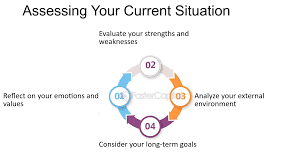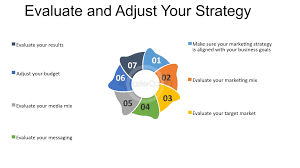In today’s dynamic job market, career changes are becoming increasingly common. Whether driven by personal passion, new opportunities, or the need for a better work-life balance, transitioning to a new career can be both exciting and daunting. As we move through 2024, it’s crucial to adopt a strategic approach to career planning. This guide offers essential tips to help you navigate a career change successfully and achieve your professional goals.
1. Reflect on Your Current Situation

Before embarking on a career change, take time to evaluate your current job satisfaction. Ask yourself:
- What aspects of your current job do you enjoy or dislike?
- Are there specific skills or interests you want to pursue?
- What are your long-term career goals?
Understanding your motivations will help clarify your direction and ensure that your new career aligns with your passions and values.
2. Conduct Market Research
Researching the job market is vital to understanding the demand for your desired career. Consider:
- Industry Trends: Identify growing industries and sectors. Technology, healthcare, and renewable energy are examples of fields experiencing rapid growth.
- Job Roles: Investigate the roles within your target industry. What qualifications and skills are in demand?
- Company Insights: Look into potential employers and their work culture. Understanding company values and expectations can help you find the right fit.
3. Assess Your Skills and Qualifications
Evaluate your current skills and qualifications to determine how they transfer to your new career path. Consider:
- Skills Inventory: Make a list of your hard and soft skills. Which ones are applicable to your new field?
- Gaps Analysis: Identify any gaps between your current qualifications and those required for your new career.
4. Update Your Resume and LinkedIn Profile
A well-crafted resume and LinkedIn profile are crucial when making a career change. Tips include:
- Tailor Your Resume: Highlight transferable skills and relevant experiences. Emphasize accomplishments that showcase your ability to succeed in the new role.
- Optimize LinkedIn: Update your LinkedIn profile to reflect your career change. Join relevant groups, follow industry leaders, and engage in discussions to expand your network.
5. Build a Strong Network

Networking can be incredibly beneficial when changing careers. Strategies to build and leverage your network include:
- Attend Industry Events: Participate in conferences, webinars, and networking events related to your new field.
- Connect with Professionals: Reach out to individuals working in your target industry. Informational interviews can provide valuable insights and potential job leads.
- Utilize Social Media: Engage with industry content on platforms like LinkedIn and Twitter. Join professional groups and forums to stay updated on trends and opportunities.
6. Pursue Additional Education or Training
Depending on your new career path, further education or certification may be required. Consider:
- Certifications: Obtain industry-specific certifications that enhance your qualifications and credibility.
- Courses and Workshops: Enroll in courses or workshops to gain new skills and knowledge. Online platforms like Coursera and Udemy offer a wide range of options.
7. Prepare for Interviews
When transitioning to a new career, interviews are your chance to demonstrate your fit for the role. Preparation tips include:
- Practice Responses: Prepare answers to common interview questions, focusing on how your previous experiences align with the new role.
- Showcase Transferable Skills: Emphasize how your skills and achievements are relevant to the new career.
- Research the Employer: Understand the company’s mission, values, and culture. Tailor your responses to align with their expectations.
8. Develop a Transition Plan
A structured transition plan can ease the shift from your current career to a new one. Key components include:
- Timeline: Set realistic milestones and deadlines for each stage of your career change.
- Financial Planning: Budget for potential income gaps during the transition. Consider building an emergency fund or exploring part-time opportunities.
- Support System: Seek support from mentors, career coaches, or professional networks to guide you through the process.
9. Stay Flexible and Resilient
Career changes often come with challenges and uncertainties. Cultivate resilience by:
- Being Open to Adaptation: Be willing to adjust your plans based on new information or opportunities.
- Embracing Learning Opportunities: View setbacks as learning experiences and opportunities for growth.
- Maintaining a Positive Attitude: Stay motivated and focused on your long-term goals, even if progress seems slow.
10. Evaluate and Adjust Your Strategy

After making the transition, continuously evaluate your progress and adjust your strategy as needed. Reflect on:
- Job Satisfaction: Are you meeting your career goals? Are there areas for improvement?
- Skill Development: Are there additional skills or experiences you need to enhance your performance?
- Career Growth: Are you on track for future advancement in your new field?
Conclusion
Navigating a career change in 2024 requires careful planning, research, and adaptability. By reflecting on your current situation, conducting market research, updating your resume, building a network, pursuing education, and preparing for interviews, you can successfully transition to a new career path. Remember to stay flexible, resilient, and open to learning throughout the process. With the right strategies, you can achieve your career goals and thrive in your new role.


